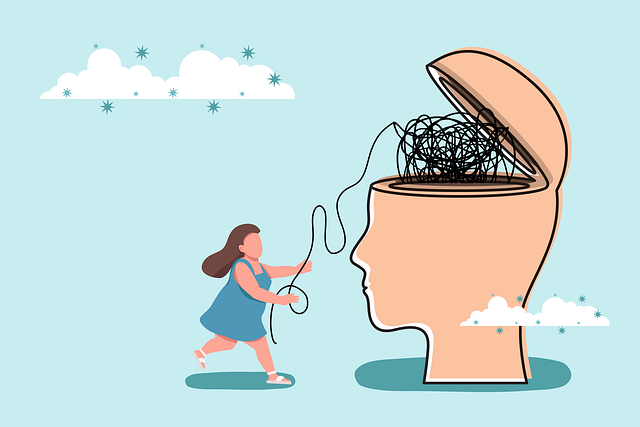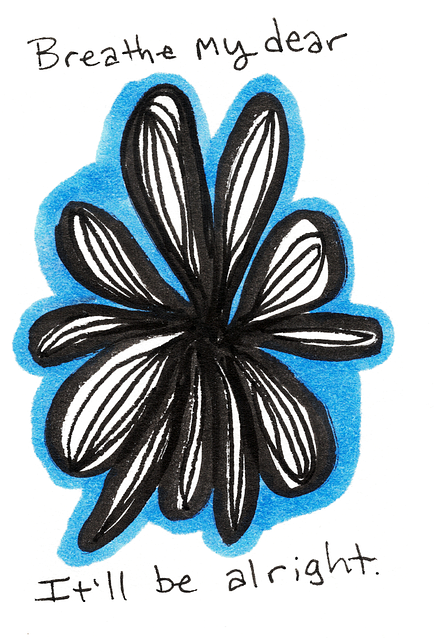Littleton Anxiety Therapy focuses on managing stress as a key component of mental well-being, recognizing that anxiety often stems from prolonged or intense stress. Their approach combines evidence-based techniques like cognitive behavioral therapy, mindfulness practices, and self-compassion to empower individuals in controlling their emotional responses. Through specialized exercises and workshops, they teach individuals to identify triggers, develop healthy coping strategies, and communicate effectively, fostering resilience for better stress management. Techniques such as meditation, journaling, exercise, and quality sleep are emphasized for a holistic approach to well-being, enabling people to confront daily stressors with equanimity.
“Stress management techniques are essential tools for navigating life’s challenges. In this comprehensive guide, we explore effective strategies to combat stress and anxiety, with a focus on the transformative power of Littleton Anxiety Therapy. From understanding the mind-body connection to practical daily rituals, you’ll discover a range of techniques to build resilience and cultivate inner calm. Learn how to harness long-term strategies that go beyond quick fixes, ultimately empowering yourself to lead a more balanced and serene life.”
- Understanding Stress and Anxiety: Unveiling the Connection
- The Role of Littleton Anxiety Therapy in Effective Stress Management
- Practical Techniques for Daily Stress Reduction
- Building Resilience: Long-term Strategies for a Calm Mindset
Understanding Stress and Anxiety: Unveiling the Connection

Stress and anxiety are often intertwined, with anxiety being a natural response to stressful situations but evolving into a problem when it becomes excessive or persistent. At Littleton Anxiety Therapy, we recognize that understanding this connection is key to effective management. Stress can stem from various sources—work pressures, financial worries, personal relationships, or even unexpected life changes—and each individual’s reaction differs.
Anxiety, on the other hand, manifests as a feeling of unease, worry, or fear, often accompanied by physical symptoms like increased heart rate and breathlessness. When stress goes unmanaged over time, it can escalate into anxiety disorders such as generalized anxiety disorder, panic attacks, or phobias. Cultivating positive thinking and compassion towards oneself is an essential aspect of our approach to help individuals regain control and develop effective emotional regulation skills.
The Role of Littleton Anxiety Therapy in Effective Stress Management

Littleton Anxiety Therapy offers a powerful toolkit for managing stress, emphasizing techniques that promote self-awareness and emotional intelligence. Through specialized exercises, individuals learn to recognize triggers and develop healthy coping mechanisms. The therapy focuses on teaching practical communication strategies to effectively express feelings and needs, reducing anxiety in various situations.
By combining self-awareness exercises with evidence-based practices, Littleton Anxiety Therapy empowers individuals to navigate stressful scenarios with greater ease. This holistic approach fosters emotional resilience, enabling people to respond thoughtfully rather than reacting impulsively to stress. As a result, individuals gain valuable skills to maintain mental well-being and enhance their overall quality of life.
Practical Techniques for Daily Stress Reduction

Stress management is an essential aspect of maintaining good mental health and well-being. Incorporating practical techniques into daily routines can significantly reduce anxiety levels, as offered by Littleton Anxiety Therapy. One effective strategy is practicing mindfulness meditation, which involves focusing on the present moment and observing thoughts and feelings without judgment. This ancient technique has been proven to calm the mind and lower stress responses.
Additionally, keeping a mental wellness journal can serve as a powerful tool for self-reflection and self-esteem improvement. Journaling encourages individuals to express their thoughts, emotions, and experiences, fostering better understanding of personal triggers and promoting positive self-talk. Combining these practices with regular exercise and adequate sleep can create a holistic approach to stress reduction, leaving individuals equipped to handle daily challenges more effectively.
Building Resilience: Long-term Strategies for a Calm Mindset

Building resilience is a key component of long-term stress management and cultivating a calm mindset. It’s about teaching individuals to adapt and bounce back from challenging situations, rather than simply reacting to them with anxiety or stress. Through evidence-based practices like cognitive behavioral therapy (CBT) and mindfulness techniques, Littleton Anxiety Therapy offers powerful tools for developing emotional agility. By participating in these workshops, learners gain a deeper understanding of their triggers and learn to reframe negative thoughts, fostering a more resilient and balanced mindset.
The Stress Management Workshops Organization emphasizes the importance of comprehensive training that incorporates Mental Health Awareness and Cultural Sensitivity in Mental Healthcare Practice. This holistic approach ensures individuals not only acquire effective stress management strategies but also learn how to apply them within diverse cultural contexts. By embracing these inclusive practices, we empower ourselves and others to build lasting resilience, enabling us to navigate life’s twists and turns with greater equanimity and a calmer mindset.
Stress management is a multifaceted approach, and incorporating techniques like Littleton Anxiety Therapy can significantly enhance one’s well-being. By understanding stress, employing practical daily strategies, and building resilience, individuals can achieve long-term mental calmness. This holistic approach, as outlined in the article, provides valuable tools to navigate life’s challenges and foster overall health.














